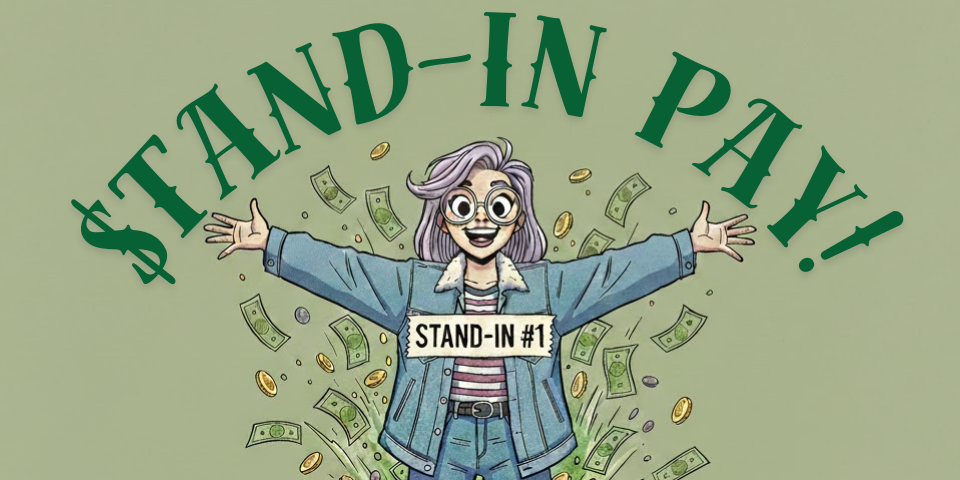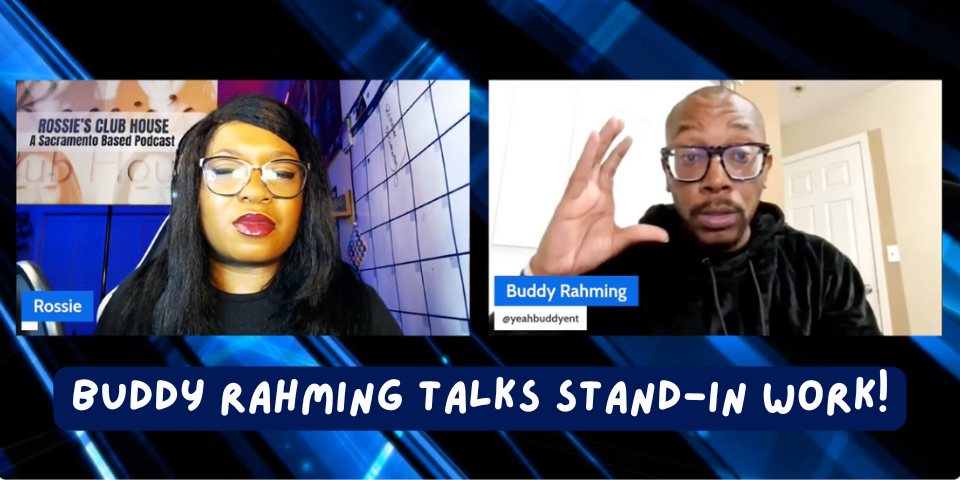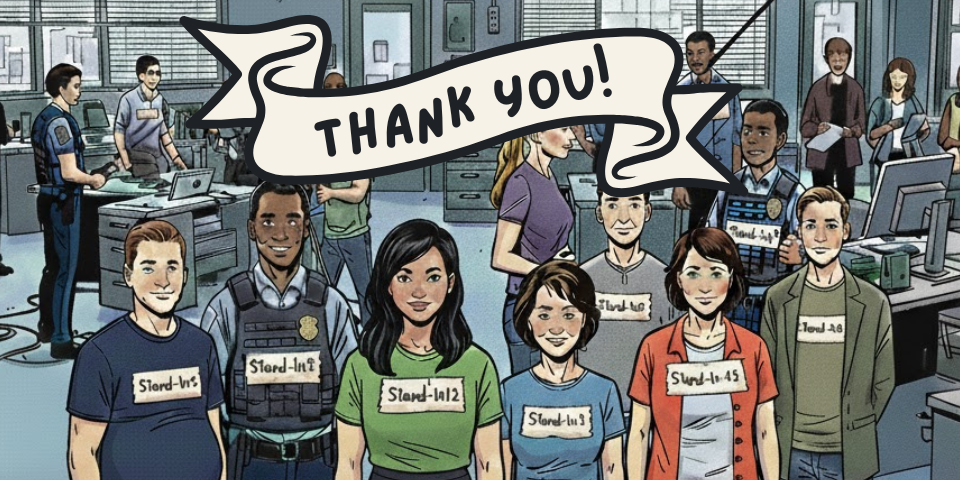In a past post in Stand-In Central’s Tips & Tricks Blog, we covered the topic of giving out preliminary information about a production day to other stand-ins.
Namely, in that post we were talking about passing along to other stand-ins the “prelim.” The prelim is a document distributed on film and television sets that often comes out midway through the workday. It is a forecast of the work for the next day, including scenes to be shot, actors to work, and the call time information for actors and crew. Stand-ins and others who work on the production take an interest in the prelim because it gives a head’s up about what’s in store the next day. Notably, stand-ins can figure out whether their actors are working — implying whether they themselves are working.
The same advice in our past post about prelims can also apply to callsheets when they come out. The callsheet is the more official document production issues, which usually does not get distributed until production wraps. It contains the most official information on scenes to be shot, actors to work, and the call time information for actors and crew working the next day. Stand-ins definitely take an interest in the callsheet because it dictates their call times, shooting locations, and gives a sense of the length of their upcoming day.
While the most official document, sometimes a callsheet can be revised. After the callsheet comes out, if there is an edit to the scenes, call times, etc., another callsheet might be issued, such as a “blue revised callsheet” (blue being the color of such a document). It may come out after you’ve gone to bed, or it might not even be available until you show up on set the next day.
This is all to say that when you are standing in and in receipt of production information, it may change. This means that if you pass that information along to another person, and if that other person is not fully aware that it could change, such passage of information could cause problems.
More fundamentally, going outside your job as a stand-in to provide production information to other stand-ins or to others you know who work on your production could cause you issues — not just professionally but also interpersonally.
Here are some tips for drawing lines in providing production information to others when you are standing in on a project.
Know Your Job
Your job as a stand-in on a production is to stand in for actors. You are not there to provide production information to others.
Therefore, it is not your responsibility to forward prelims, callsheets, or any other production information to another person taking interest in it.
Furthermore, no one should pin responsibility on you for forwarding production information. If another stand-in has questions about the next production day, the casting director is by definition a better contact for that information than you.
Providing Production Information Distracts You from Your Job
If you do share production information with others, keep in mind that doing so may distract you from your job as a stand-in.
Imagine you were dismissed from set after your actor arrived, and you are at the monitors watching the takes when the prelim comes out. If you take time to text the prelim to others, you may find that you’re distracted from the monitors and miss something your actor does during a take.
When you don’t share production information with others, you free up your energy to focus better on your work and your actor’s work.
It’s a Choice to Share, Not an Obligation
While you may choose to provide prelim or callsheet information to others, it is your right to be selective in how you do it.
That is, it’s your choice to share production information. You are not obligated to share it with others.
In fact, you can formulate your own personal policy with respect to sharing information. For example, you might decide that you will never, ever share prelim information and always defer to others. Or you might decide you will only share callsheets with regular stand-ins on a show.
No one gets to dictate your personal policy with respect to production information other than yourself.
Gift Production Information to Others
As for another personal policy, you might choose not to share production information with others unless you gift it to them.
In other words, you might choose to give production information to others whom you know would benefit from the information but who have not asked you for it.
For example, if you are working with another stand-in who obviously has a tough shoot ahead, and if you have access to the callsheets, you might say you’d be happy to text the callsheet at wrap. Or you might say that the stand-in is welcome to text you about callsheets in the future, within reason. You are basically inviting future interaction about production information rather than letting the other person initiate the interaction.
This way you control who contacts you for production information and control to whom you provide it. If someone asks you for the prelim or callsheet without your inviting that person to contact you, you can feel in a better place to say no to that person.
Of course, in the future, you can change your personal policy — or simply decide you don’t want to share production information with someone in the past to whom you’ve gifted it.
Never Say “I’m Sorry” for Not Providing Information
If someone asks you for production information that you do not want to provide, you do not need to say “I’m sorry” for not providing it.
Saying “I’m sorry” is equivalent with saying “I’m lame.” In saying that you’re lame for not providing production information to others, you are lowering your self-esteem. In so doing, you may make it easier for the other person to guilt you into providing that information in the future or otherwise manipulate you emotionally.
If you wish to express regret for not providing production information, rather than saying “I’m sorry,” say “I apologize.” Saying that you apologize says that you regret that you cannot send the information — you call attention to the behavior of sending. Saying that you’re lame ignores the behavior and calls attention to your identity.
However, you don’t even need to regret your decision not to provide production information to others. Therefore, it may be completely unnecessary even to say “I apologize.” You may not even need to say anything!
While a verbal shift from saying “I’m sorry” to saying “I apologize” may seem trivial, its emotional and interpersonal effects can have lasting benefits and guard you from feeling bad about your choice not to provide production information. And eliminating apologies can help remind you that your job is as a stand-in, not as a provider of production information.
Documents Have Watermarks
Callsheets sometimes have bold watermarks with your name in the background of the document — especially if you are on the email distribution list for the production.
If you forwarded a callsheet boldly watermarked with your name, and if that callsheet was forwarded to others who shouldn’t have access to it, you might end up in trouble with the production.
That said, if your production practices watermarking its callsheets, you are in a position not to share them with others. The same logic would apply to prelims.
So, should you need a reason not to forward production information to others, simply say your production watermarks its prelims and callsheets with your name so you can’t.
Simply Put: Lie
Again, since your job is as a stand-in and not as the provider of production information, should someone be overly persistent in getting production information from you, you do not need to tell the truth about whether you have that information or whether you can give it. Simply lie if it helps get an irritating person off your back.
You may be the nicest person in the world. That said, lying to a person who is persistent in annoying you for production information does not suddenly ruin all of your hard work at becoming a nice person. Instead, it is self-protective to lie — and continuing to take a beating from a persistent person would only be hurting yourself.
Lying to an irritating person about whether you can provide production information does not suddenly make you a “bad person” — it makes you a nice person who is not a pushover.
As for ideas for lies, you can say you can’t share information because you got in trouble in the past, that you think production watermarks its documents, or something else along those lines.
Don’t Reply
Along the same lines, if you get texts or emails from others seeking production information, as with spam texts or other nuisance correspondence, you do not need to reply. That means you do not need to reply in a timely fashion — you can leave the reply dangling. That also means you do not need to reply at all.
Imagine getting a text out of nowhere from someone who is not in your smartphone asking for production information. How did this person get my number in the first place?, might be your first thought. If you are finding yourself offended by someone texting you for a prelim or a callsheet, that is a good pretense for not replying.
Conclusion
Granted, the above advice may sound harsh. However, if you work as a stand-in long-term, and if you are known to have production information, you may find that as time goes on more and more people will seek you out for production information. If you said yes to everyone seeking production information, you may find yourself distracted from standing in by providing the information to so many people, or you may find your off-the-clock hours are being spent answering others’ questions about the shoot tomorrow, perhaps when you are supposed to be resting for the next day.
Production information is valuable information to others — so share it carefully. And think not just of the implications of sharing it with one person. That one person can forward it to many other people. Or that one person may publicize that you have that information, which may bring others to you asking for it.
All in all, a good offense is a good defense. Protect yourself when it comes to sharing production information with others and you’ll find you feel more comfortable as you become more notable and respected as a stand-in.
What additional advice would you have when it comes to sharing prelims and callsheets? Share your advice below!
Discover more from Stand-In Central
Subscribe to get the latest posts sent to your email.






Great stuff, Ben. I am very impressed with the amount of detail and fine-tuning you brought to this piece. And your section on not apologizing is priceless and can be applied to real life interrelationships, as well. I am sure the recovering Catholics among us can attest to that!
I’m sorry, Peter.
Just kidding!
Thank you, Peter!
Really great article! Even though I’ve been doing full time stand-in work for 10+ years now, I still struggle with how to handle my colleagues when they ask for information. So it’s really great to have this advice to remind myself that I’m not obligated to give out information and that I don’t have to apologize for it. And that I shouldn’t let my work suffer because of it. Thanks so much for this!